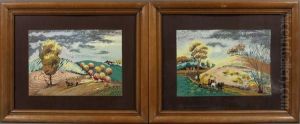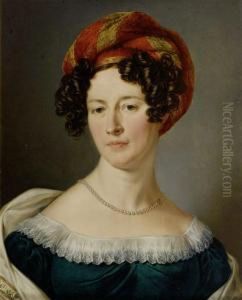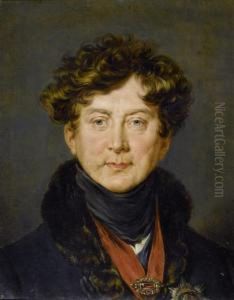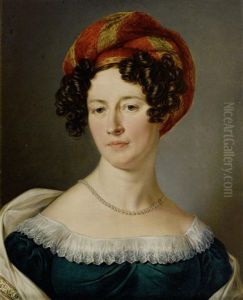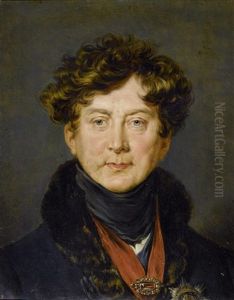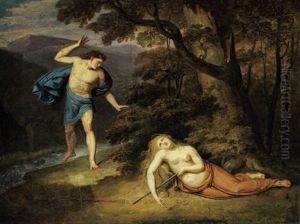Alexander Macco Paintings
Alexander Macco, born on June 5, 1813, in Aachen, Germany, was a notable figure in the 19th-century European art scene, particularly renowned for his contributions to landscape and architectural painting. His artistic journey was deeply influenced by the rich cultural heritage of his hometown as well as the broader artistic movements of his time, including Romanticism, which emphasized emotion and individualism, and later, Realism, focusing on depicting everyday scenes with truth and accuracy.
Macco's early life was steeped in an environment that cherished the arts, leading him to pursue an education in painting. He studied at the prestigious Academy of Fine Arts in Düsseldorf, a hub for aspiring artists in Germany, where he was mentored by notable figures of the era. This period was crucial in shaping his artistic direction, honing his skills in capturing the essence of nature and architecture with a delicate balance of light and shadow, a hallmark of his later works.
Throughout his career, Alexander Macco was an avid traveler, drawing inspiration from the varied landscapes and historical sites across Europe. His travels not only broadened his artistic horizons but also allowed him to capture a diverse range of subjects, from the serene countryside of his German homeland to the grandeur of ancient Roman ruins. These expeditions were pivotal in the development of his style, which evolved to reflect a meticulous attention to detail and a profound appreciation for the interplay of natural and man-made elements.
Macco's contributions to art were not limited to his own creations. He was also a respected teacher, sharing his knowledge and passion with the next generation of artists. His teaching philosophy emphasized the importance of studying nature directly, encouraging students to venture outside the confines of the studio to truly observe and understand their subjects. This approach left a lasting impact on his students and helped to propagate a realistic portrayal of landscapes and architectural forms in German art.
Alexander Macco's legacy is preserved through his artworks, which continue to captivate viewers with their beauty and historical significance. His paintings are a testament to his skill in capturing the essence of his subjects, offering a window into the landscapes and architectural marvels of 19th-century Europe. Macco passed away on February 5, 1899, in Düsseldorf, leaving behind a body of work that continues to be celebrated for its contribution to the landscape and architectural genres of painting. His life and work remain a subject of study for art historians and a source of inspiration for artists around the world.
